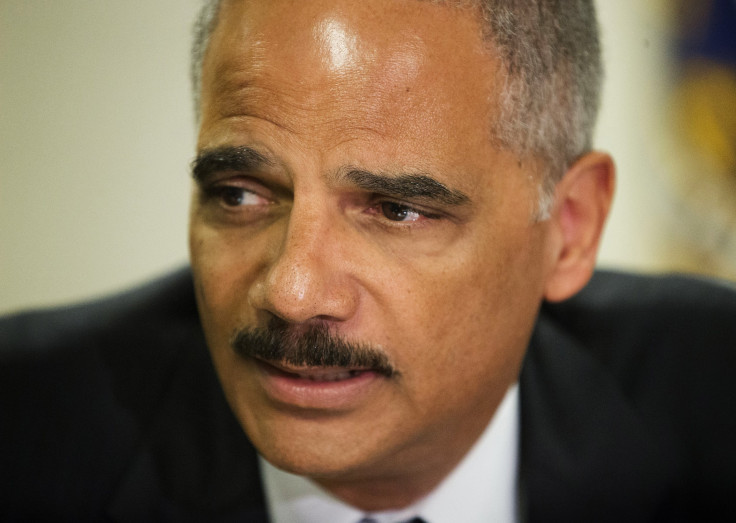Al Qaeda Group Khorasan Was 'In The Execution Stage Of A Plot' On US, Says Attorney General Holder

The al Qaeda-affiliated Khorasan group was “in the execution stage of a plot” when the United States and its allies began a bombing campaign on militant strongholds in Syria, Attorney General Eric Holder said Friday. The Khorasan group was largely unknown to the American public before the strikes, but Holder said U.S. intelligence had been tracking it for years.
“I can't get into specifics, but there is no question that the Khorasan Group had moved into the execution phase of a plot,” Holder told NBC’s Pete Williams in an interview Friday. “And the bombing campaign that was begun was designed to disrupt and stop that plot that was imminent.”
Holder’s claim echoed the Pentagon’s statement Tuesday that coordinated airstrikes in Syria were meant not only to “degrade and destroy” the militant group formerly known as the Islamic State of Iraq and Syria (ISIS) but also to foil a Khorasan attack plan.
"We believe the Khorasan group was nearing the final stages of an attack in Europe or the homeland," Gen. William Mayville, the Joint Staff director of operations, said at a Pentagon briefing Tuesday. "It is clearly not focused on either the Assad regime or the Syrian people."
Khorasan is widely believed to be operating with Jabhat al-Nusra in Syria and is the most secretive of al Qaeda’s branches operating under the cover of the civil war, according to United Nations documents recently consulted by the International Business Times. However, unlike many of the other groups in Syria which seek to overthrow Syrian President Bashar Assad, ISIS or both, Khorasan has expressed little interest in the war's outcome.
Khorasan leader Muhsin al-Fadhli had close ties to Osama Bin Laden and was one of the very few who knew about the 9/11 attacks before they happened. After leading al Qaeda’s branch in Iran while its official leader was detained, Fadhli was reportedly sent to Syria when al Qaeda leader Ayman al-Zawahiri reshuffled militant personnel. Zawahiri saw a prime opportunity in Syria to recruit Western passport holders who had come to fight with other extremist groups in Syria. Westerners can board planes back to their homelands more easily, according to the AP.
The Pentagon has not confirmed whether airstrikes succeeded in thwarting Khorasan’s plan to attack U.S. targets but initial reports indicated that the group’s leader may have been killed.
© Copyright IBTimes 2024. All rights reserved.












